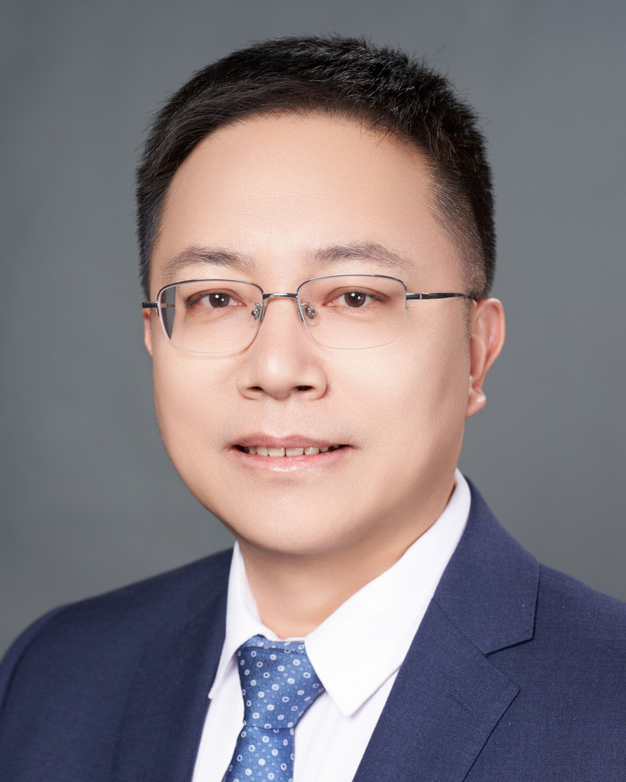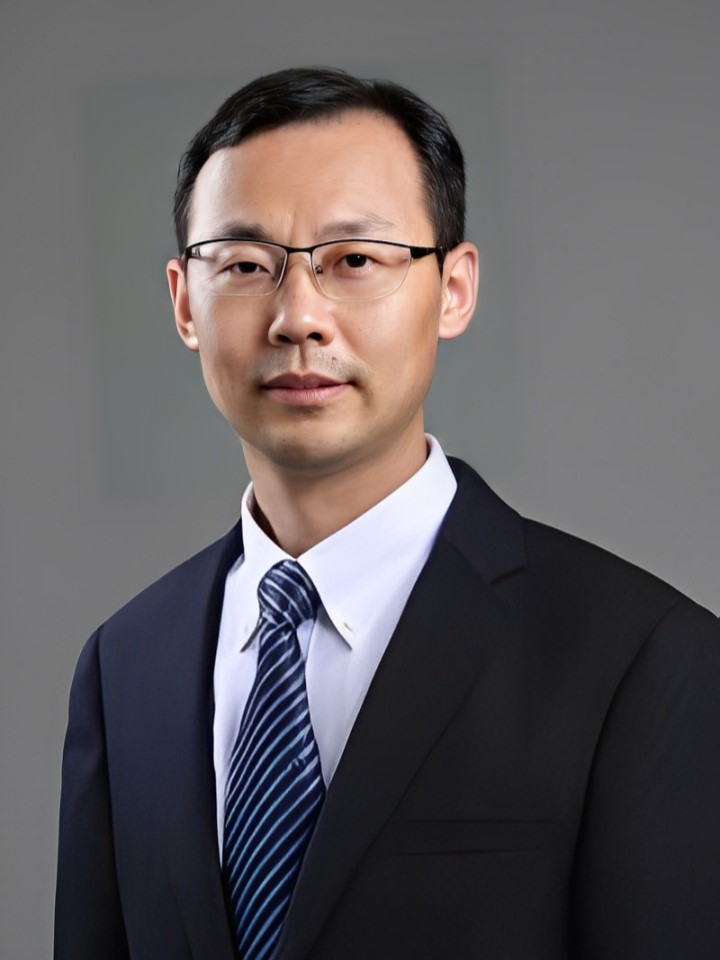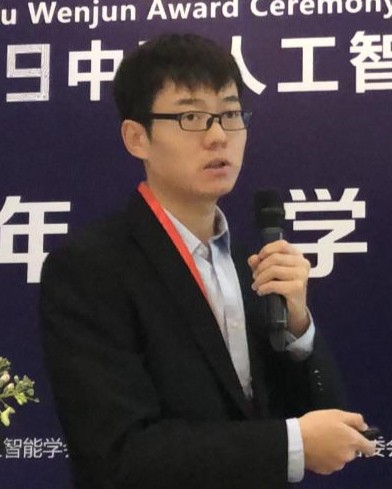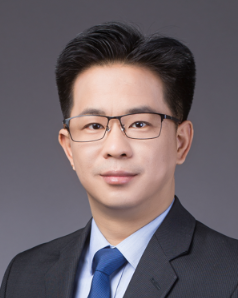
Prof. Qingsong Xu IEEE Fellow, ASME Fellow, AAIA FellowUniversity of Macau, China |
Biography: Qingsong Xu is a Professor at the Department of Electromechanical Engineering, Faculty of Science and Technology, University of Macau, and Director of Smart and Micro/Nano Systems Laboratory. He was a Visiting Scholar at the Swiss Federal Institute of Technology (ETH Zurich), Switzerland, the National University of Singapore, Singapore, RMIT University, Melbourne, Australia, and the University of California, Los Angeles (UCLA), USA.
His current research involves micro-/nanorobotics, flexible robotics, intelligent control, and their industrial and biomedical applications. He has published four books and over 450 papers in international journals and conferences, cited more than 14000 times in Google Scholar with an H-index of 70. Prof. Xu has received over a dozen best paper awards at international conferences and multiple times of Macao Science and Technology Awards from Macao SAR, China. He was selected into the Top 2% Scientists Worldwide, released by Stanford University in 2019-2024.
He currently serves as an Associate Editor of IEEE Transactions on Robotics (2021-present). He was a Technical Editor of IEEE/ASME Transactions on Mechatronics (2016-2020) and an Associate Editor of IEEE Transactions on Automation Science and Engineering (2019-2023) and IEEE Robotics and Automation Letters (2017-2020). He was elevated to Fellow of ASME (American Society of Mechanical Engineers) in 2021, Fellow of IEEE (Institute of Electrical and Electronics Engineers) in 2025, and Fellow of AAIA (Asia-Pacific Artificial Intelligence Association) in 2025.
Title: Development of Flexible Microrobots for Precision Biomedical Applications
Abstract: A flexible microrobot has a flexible structure or operation, which is essential for performing precision micromanipulation and force interaction tasks by interacting with the environment. Flexible-structure microrobots transmit displacement and force via elastic deformation of the materials. Compliant microrobot end-effectors and flexible micromanipulators are two kinds of tools that must meet strict standards for robotic handling with contact force regulation. Flexible-function microrobots can perform dexterous manipulations of target micro-objects with delicate contact force regulation and environmental force resistance. This presentation will report on our recent development of flexible microrobots for precision biomedical applications. It ranges from compliant robotic micromanipulators for biological cell micromanipulation, magnetic soft catheter robots for vascular intervention, and untethered magnetic microrobots for precision therapy. These flexible microrobotic systems will enable many applications to enhance human health via precision medical treatment. The challenging problems will be addressed, and future work will be discussed.
 |
Prof. Ning Sun National-Level Young TalentNankai University, China |
Biography: Sun Ning, Professor and Doctoral Supervisor at Nankai University. He is a recipient of the National Young Talent Program, Baosteel Excellent Teacher Award, and IEEE Senior Member. He has been awarded/fellowship including the JSPS Postdoctoral Fellowship (Japan), Nankai University "Hundred Young Academic Leaders Program", and multiple provincial/ministerial/society-level talent/honorary titles.
He received his B.E. degree from Wuhan University in 2009 and his Ph.D. degree from Nankai University in 2014, under the supervision of Professor Fang Yongchun.
Research Interests: (1) Underactuated robots; (2) Bio-inspired and reconfigurable robots; (3) Special industrial robots; (4) Intelligent control methods and applications.
 |
Prof. Xingjian Wang National-Level Young TalentBeihang University, China |
Biography: Xingjian Wang, professor, vice dean of School of Automation Science and Electrical Engineering, Beihang University. He received his Ph.D. and B.E. degrees in Mechatronic Engineering from Beihang University, China, in 2012 and 2006, respectively. From 2009 to 2010, he was a visiting scholar in the School of Mechanical Engineering, Purdue University, West Lafayette, IN, US. He is currently with the School of Automation Science and Electrical Engineering, Beihang University, Beijing, China. His research interests include nonlinear control for mechatronic systems, fault diagnosis and fault-tolerant control, biomechatronics and bio-inspired robotics. He has published over 200 papers. His research has been supported NSCF and other grants in China.
Title: Optimal Design and Interactive Control of Electro-hydraulic Active Ankle Prosthesis
Abstract: Ankle prostheses are important means to help lower limb amputees walk normally. Their stability and flexibility play a decisive role in human motion coordination. However, current active prostheses have problems such as insufficient battery life, poor interactivity, and the inability to automatically adjust system damping. To address these challenges, research on the energy time-domain configuration of electro-hydraulic active ankle prostheses was carried out, and the optimal design of electro-hydraulic active ankle prostheses was completed. Based on the fusion of multi-source information from biological, mechanical, electrical, and hydraulic systems, human motion state prediction and complex environment perception were achieved through deep learning. An interaction strategy for motion state synchronization was proposed to realize an intelligent human-machine interaction control method, achieving active compliant control of ankle prostheses and reproducing the motion characteristics of natural limbs.
 Prof. Chengxiang Wang Member of the Academia Europaea, IEEE Fellow, IET FellowSoutheast University, China |
Biography: Cheng-Xiang Wang received the B.Sc. and M.Eng. degrees in communication and information systems from Shandong University, China, in 1997 and 2000, respectively, and the Ph.D. degree in wireless communications from Aalborg University, Denmark, in 2004. He was a Research Assistant with the Hamburg University of Technology, Hamburg, Germany, from 2000 to 2001, a Visiting Researcher with Siemens AG Mobile Phones, Munich, Germany, in 2004, and a Research Fellow with the University of Agder, Grimstad, Norway, from 2001 to 2005. He was with Heriot-Watt University, Edinburgh, U.K., from 2005 to 2018, where he was promoted to a professor in 2011. He has been with Southeast University, Nanjing, China, as a professor since 2018, and he is now the Dean of the School of Information Science and Engineering. He is also a professor with Purple Mountain Laboratories, Nanjing, China. He has authored 4 books, 3 book chapters, and over 640 papers in refereed journals and conference proceedings, including over 240 IEEE journal/magazine papers and 29 highly cited papers.He has also delivered 34 invited keynote speeches and 23 tutorials in international conferences. His current research interests include wireless channel measurements and modeling, 6G wireless communication networks, and electromagnetic information theory. Dr. Wang is a Member of the Academia Europaea (The Academy of Europe), a Member of the European Academy of Sciences and Arts (EASA), a Fellow of the Royal Society of Edinburgh (FRSE), IEEE, IET and China Institute of Communications (CIC), an IEEE Communications Society Distinguished Lecturer in 2019 and 2020, a Highly-Cited Researcher recognized by Clarivate Analytics in 2017-2020. He is currently an Executive Editorial Committee Member of the IEEE TRANSACTIONS ON WIRELESS COMMUNICATIONS. He has served as an Editor for over ten international journals, including the IEEE TRANSACTIONS ON WIRELESS COMMUNICATIONS, from 2007 to 2009, the IEEE TRANSACTIONS ON VEHICULAR TECHNOLOGY, from 2011 to 2017, and the IEEE TRANSACTIONS ON COMMUNICATIONS, from 2015 to 2017. He was a Guest Editor of the IEEE JOURNAL ON SELECTED AREAS IN COMMUNICATIONS, Special Issue on Vehicular Communications and Networks (Lead Guest Editor), Special Issue on Spectrum and Energy Efficient Design of Wireless Communication Networks, and Special Issue on Airborne Communication Networks. He was also a Guest Editor for the IEEE TRANSACTIONS ON BIG DATA, Special Issue on Wireless Big Data, and is a Guest Editor for the IEEE TRANSACTIONS ON COGNITIVE COMMUNICATIONS AND NETWORKING, Special Issue on Intelligent Resource Management for 5G and Beyond. He has served as a TPC Chair and General Chair for more than 30 international conferences. He received IEEE Neal Shepherd Memorial Best Propagation Paper Award in 2024.He also received 19 Best Paper Awards from international conferences.


